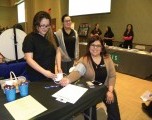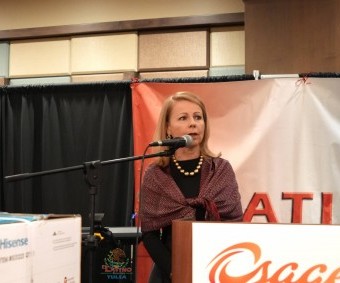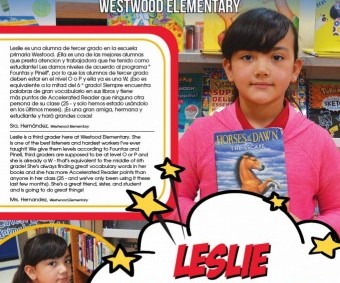Hispanics’ Consumer Confidence Drops Slightly in First Quarter as Political Divisions Show in Economic Expectations

Boca Raton, Fla.– Consumer confidence among Hispanics in the U.S. dropped slightly in the first quarter of 2019 as political divisions became apparent in their economic outlook for the U.S., according to a new national consumer sentiment index conducted by the Florida Atlantic University Business and Economic Polling Initiative (FAU-BEP) in FAU’s College of Business
The Hispanic Consumer Sentiment Index, taken from January through March, stands at 96.6, down nearly two points from the fourth quarter of 2018 when the Index stood at 98.5. The index is now two points above the first quarter score of 94.5 for the overall U.S. population as published by the University of Michigan.
Overall, 67 percent of Hispanics said they are financially better off today than a year ago, down four points from the fourth quarter of 2018 (71 percent). Looking ahead, 74 percent of Hispanics indicated they would be better off over the next year, which is about the same as in the fourth quarter. Hispanics that self-identified as Republicans are more optimistic about their future financial situation (82 percent) compared to Democrats (68 percent), Independents (72 percent) and unregistered voters (77 percent).
Hispanics short-run economic outlook was also unchanged, with 59 percent of Hispanics saying they expect the country as a whole to experience good business conditions in the upcoming year. Again, Republicans are more optimistic about the short-run economic outlook of the country (65 percent), compared with Democrats (54 percent), Independents (59 percent) and unregistered voters (60 percent).
Hispanics’ long-run outlook also took a slight downturn, with 58 percent of Hispanics expecting good times for the country as a whole over the next five years, down one point from the fourth quarter (59 percent). Republicans once again are more optimistic about the long-run economic outlook of the country (70 percent), compared with Democrats (49 percent), Independents (63 percent) and unregistered voters (51 percent).
Overall, 62 percent of Hispanics think it is good time to buy big-ticket items for the home, down from 63 percent in the fourth quarter.
“These results show the divergence in perceptions of the performance of the economy across political parties,” said Monica Escaleras, Ph.D., director of FAU BEPI. “Furthermore, this political division in economic expectations could play a role in next year’s Presidential primaries.”
The drop in consumer confidence also appeared to bring down U.S. President Donald Trump’s approval rating among Hispanics, which dipped back to 37 percent after jumping to 40 percent in the fourth quarter of 2018. Of those surveyed, 26.7 percent identified themselves as Republicans, 38 percent Democrats, 18.3 percent Independents and 17.1 percent were not registered.
The survey was conducted nationally from Jan. 1 to March 31. The random polling sample consisted of 640 Hispanics, 18 years of age and older, with a margin of error of +/- 3.87 percent. The survey was administered using both landlines via IVR data collection and online data collection using Survey Sampling International.
Responses for the entire sample were weighted to reflect the national distribution of the Hispanic population by region, education, gender and age according to latest American Community Survey data.
About FAU BEPI:
The Florida Atlantic University Business and Economic Polling Initiative conducts surveys on business, economic, political and social issues with a focus on Hispanic attitudes and opinions at regional, state and national levels via planned monthly national surveys. The initiative subscribes to the American Association of Public Opinion Research and is a resource for public and private organizations, academic research and media outlets. In addition, the initiative is designed to contribute to the educational mission of the University by providing students with valuable opportunities to enhance their educational experience by designing and carrying out public opinion research.
About Florida Atlantic University
Florida Atlantic University, established in 1961, officially opened its doors in 1964 as the fifth public university in Florida. Today, the University, with an annual economic impact of $6.3 billion, serves more than 30,000 undergraduate and graduate students at sites throughout its six-county service region in southeast Florida. FAU’s world-class teaching and research faculty serves students through 10 colleges: the Dorothy F. Schmidt College of Arts and Letters, the College of Business, the College for Design and Social Inquiry, the College of Education, the College of Engineering and Computer Science, the Graduate College, the Harriet L. Wilkes Honors College, the Charles E. Schmidt College of Medicine, the Christine E. Lynn College of Nursing and the Charles E. Schmidt College of Science. FAU is ranked as a High Research Activity institution by the Carnegie Foundation for the Advancement of Teaching. The University is placing special focus on the rapid development of critical areas that form the basis of its strategic plan: Healthy aging, biotech, coastal and marine issues, neuroscience, regenerative medicine, informatics, lifespan and the environment. These areas provide opportunities for faculty and students to build upon FAU’s existing strengths in research and scholarship. For more information, visit www.fau.edu.
Comentar
Los campos obligatorios estan marcados con *


















































Comentar con Facebook